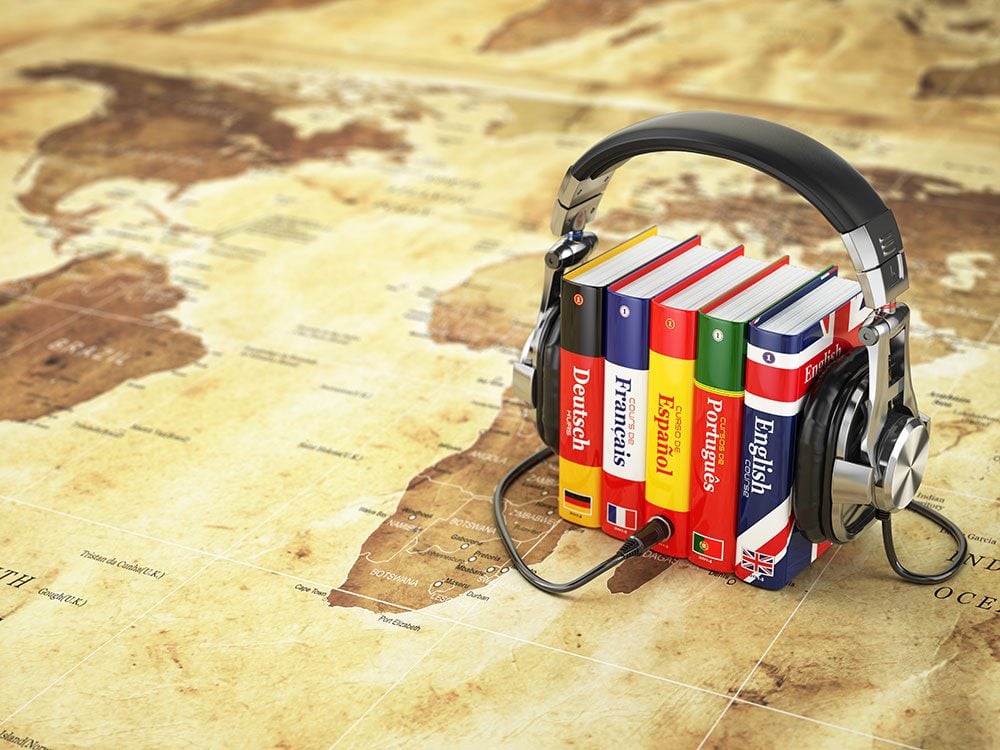
Want to Become Smarter? Be a Bookworm
How many hours did you spend reading books last week? This question has been asked in thousands of homes every other year since 1992 as part of the University of Michigan’s Health and Retirement Study (HRS). In 2016, when Yale researchers dug into the HRS data collected from more than 3,600 men and women over the age of 50, a hopeful pattern emerged: people who read books for as little as 30 minutes a day over several years were living an average of two years longer than people who didn’t read anything at all. Newspapers and magazines granted a smaller but similar advantage.
Why would a sedentary activity add years to your life? For starters, reading—especially fiction—has been shown to increase empathy and emotional intelligence. Sharpening these social tools can lead to an increase in positive human interaction, which in turn can lower stress levels—both factors that lead to health and longevity.
Then there’s the fact that books expose you to fresh words and phrases. New findings from Spain’s University of Santiago de Compostela indicate that a large vocabulary may foster a more resilient neural structure by fuelling what scientists call cognitive reserve. You might think about this surplus as your brain’s ability to adapt to damage. Just as your blood cells will clot to cover a cut on your knee, cognitive reserve helps your brain cells find new mental pathways around areas that may have been injured by stroke, dementia and other forms of deterioration.
Need some suggestions on what to read next? Here are 14 Famous Books You Really Should Have Read by Now.

Learn a Second (or Third, or Fourth) Language and You’ll Become Smarter
Words from languages other than your native tongue are also good for shoring up cognitive reserve. Polyglots have been shown to be stronger at multitasking, superior at memorizing and better at focusing on important information. Toronto-based research published in 2006 in the journal Neuropsychologia has shown that multilingual people develop initial dementia symptoms four years later, on average, than their monolingual counterparts. And while a brain that learns another language at an earlier age will likely see more cognitive benefits than a late-life learner, there are gains no matter when you start.
Want to become multilingual? Here are 13 Things You Should Know About Learning a New Language

Train Your Memory
What’s the difference between someone who can remember hundreds of words or numbers and the rest of us? It’s not based on brain structure; it’s simply mental training and good strategies. Here are some handy tricks for use in daily life.
Target: Memorizing your PIN.
Technique: Count it out.
You could use your birthday or your phone number, but identity thieves have a way of ferreting those out. Instead, try this tip from Dominic O’Brien, a British mnemonist and an eight-time World Memory Champion. Write a four-word sentence, then count the number of letters in each word. For instance, “This is my PIN” = 4223.
Target: Memorizing facts and figures.
Technique: Say them aloud.
It turns out the one-room-schoolhouse teachers of yore were onto something when they made students recite their lessons. An influential 2010 paper out of Ontario’s University of Waterloo suggested there’s a benefit to actively “producing” data by typing it, drawing it or saying it aloud. “The dominant theory is that the extra stuff one does, beyond silent reading, renders that information more distinctive in memory,” says Dr. Glen Bodner, director of the Memory and Cognition Lab at the University of Calgary. However, this strategy works best for helping you recognize a fact as familiar and correct when it comes up later on, rather than helping you pull it out of thin air.
Having trouble remembering? Here’s How to Improve Your Memory in 5 Easy Steps.

More Memory Training Tricks
Target: Memorize new vocabulary words.
Technique: Switch up your study routine.
In a classic experiment conducted at the University of Michigan in the 1970s, subjects studied a list of words in two separate sessions. One group spent the whole time in the same room, while the other split the lessons between two locations. When tested—in yet another room—the students who crammed in multiple places recalled 53 per cent more than the others. Subsequent studies showed that varying other aspects of your environment (the time of day, the music in the background, whether you sit or stand, etc.) can also help your recall. The theory is that your brain links whatever you are learning to the context around you, and the more contextual cues you provide, the more your brain has to draw upon when it’s trying to remember.
Target: Memorize faces.
Technique: Focus on noses.
Rather than focusing on someone’s eyes, focus on the centre or to the left of the nose. Doing so allows you to take in the whole face at once, suggests a 2008 gaze-tracking experiment from the University of California San Diego.
Target: Memorize your grocery list.
Technique: Use the body system.
Transforming information into a vivid mental image is a tried-and-true memorization technique. Picture the items on your list with different parts of your body. For instance, imagine balancing a package of cheese on your head, an egg on your nose and a bottle of milk on your shoulder.
If the prospect of adopting all these brain-boosting habits at once seems daunting, fear not: the key is choosing target areas that make sense for you and applying those strategies in earnest. Before long, you may notice your mind is faster, stronger and sharper than ever before. Good luck!
Check out these 5 Memory-Boosting Tricks from a Jeopardy! Whiz!